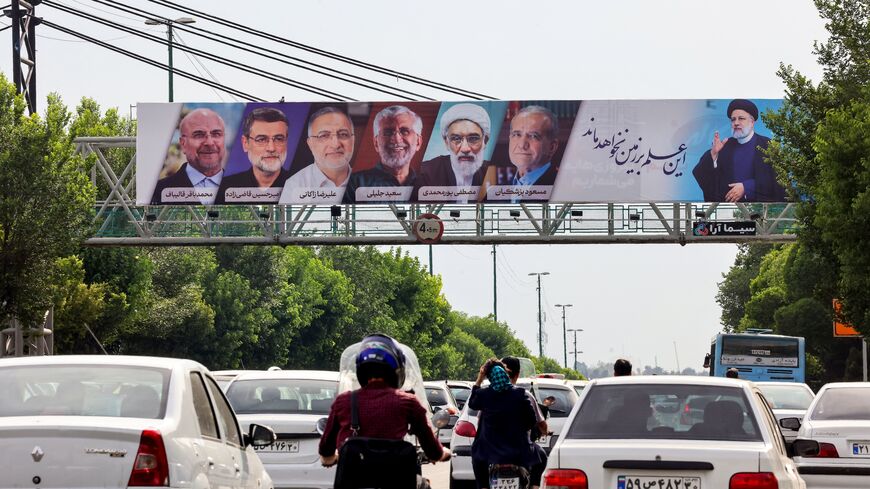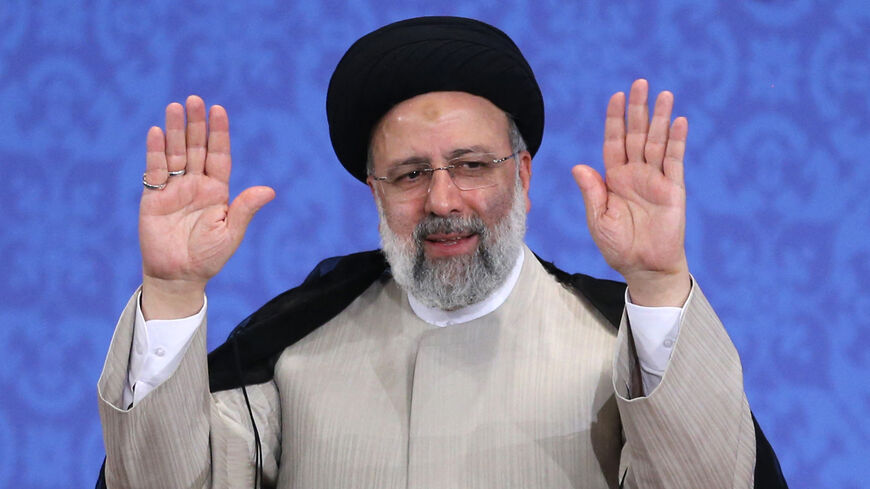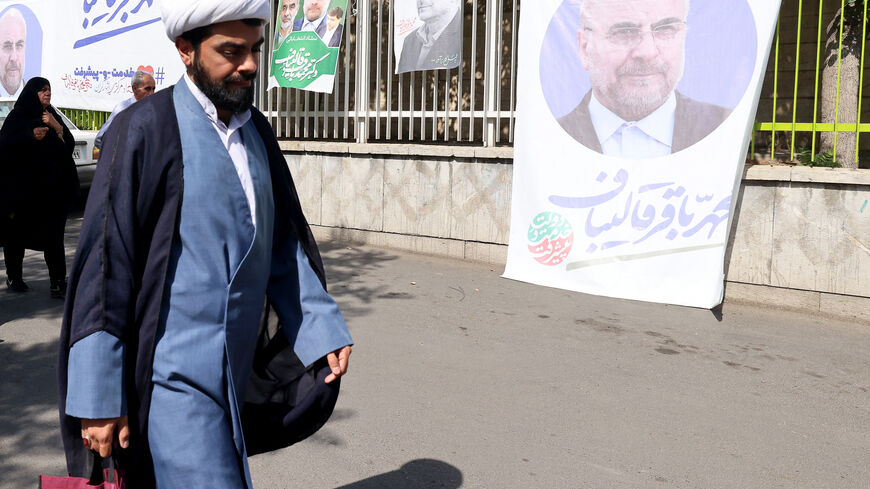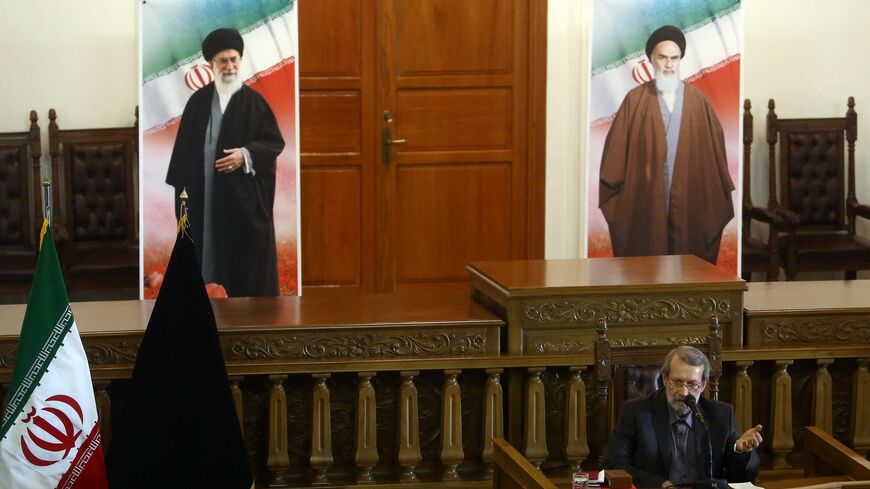Could Zarif tilt Iran's election toward long shot Reformist Pezeshkian?
By enlisting Mohammad Javad Zarif, Masoud Pezeshkian is sending a signal to the United States and the West, as well as to Iranians, about a possible change of course in Iran's foreign policy if he pulls off an upset next week.
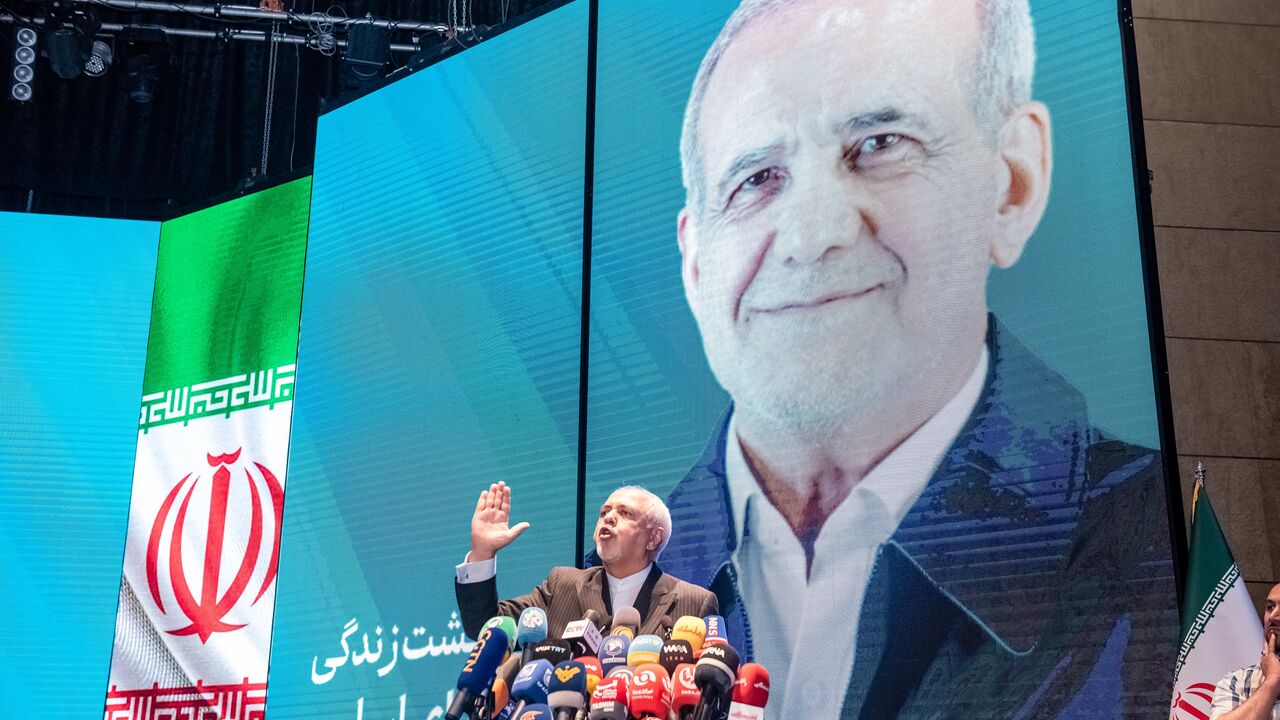
Zarif back in the arena
Iran’s sole reformist candidate for president, lawmaker Masoud Pezeshkian, has shaken up the race by enlisting former Foreign Minister Mohammad Javad Zarif as his foreign policy adviser.
Zarif, who served as foreign minister under President Hassan Rouhani (2013-2021), was the architect of the Iran nuclear deal, which was cheered by Iranians when signed in 2015.
Iran’s economy surged the next three years, until US President Donald Trump withdrew from the accord in 2018 and imposed even tougher sanctions on Iran.
Many Iranians nonetheless may look back with some nostalgia at the Rouhani era, when the Iranian economy began to bounce back as a result of the Joint Comprehensive Plan of Action (JCPOA), the official name of the nuclear deal, and when Zarif’s role on the world stage opened a door to the West.
Zarif, seated next to Pezeshkian on a TV panel last week, made an impassioned case for the positive economic impact of the nuclear deal. The numbers are on Zarif’s side — Iran’s economy was better then than now.
“Zarif remains very popular, and his role in the campaign could unsettle the establishment,” said Al-Monitor contributor Ali Hashem, who was recently in Iran.
It’s already happening. The other five presidential candidates and the conservative press have now made Rouhani and Zarif, as well as Pezeshkian, the targets of attacks.
A message to the United States and the West
Pezeshkian says diplomacy is the best path for sanctions relief and economic progress. By enlisting Zarif, he is sending a signal to the United States and the West, as well as to Iranians, about a possible change of course in Iranian foreign policy if he wins.
“When you think of Zarif, you think of dialogue with the United States,” said Hashem.
Dealing with the United States, and maybe even US President Donald Trump, looms over the election, said Vali Nasr, a professor at the Johns Hopkins University School of Advanced International Studies, in this week’s On the Middle East podcast with Amberin Zaman.
Iranians and many others in the region are already planning for a Trump win, said Nasr. A second Trump administration could mean a new push for maximum pressure or the art of the deal — or both.
Iran’s potential for a nuclear weapons breakout remains a top priority for Washington no matter who wins the US presidential election on Nov. 5. Reports this week indicate that Iran has expanded production of highly enriched uranium production at two of its nuclear plants, shortening the timeline needed to roll out a nuclear weapon if it makes the decision to do so.
And, as Nasr points out, if Trump ends Russia’s war with Ukraine, as he has said he would do, this would be a game changer in global politics with consequences for Iran, which has deepened its military and economic ties with Russia since the war.
Reformists all in on Pezeshkian
The establishment and the hard-line Guardian Council, which vets candidates, may not have anticipated the possible impact of Zarif coming off the bench for Pezeshkian.
Pezeshkian, a low-key heart surgeon, was likely envisioned to slightly boost interest and turnout, not to rally the reformists and maybe split the conservative vote — a solid 20% or so of the electorate — among the other five candidates.
“The council's recurrent purge of heavyweight moderate politicians has been interpreted as an attempt by the hard-line-controlled establishment to choreograph victory for its favored candidates,” wrote our correspondent from Tehran. “Critics have also argued that the move to allow only one reformist candidate (with limited charisma) to enter the race has been meant merely to lift voter participation following record-low turnouts in the past two.”
The current election was called after the deaths of President Ebrahim Raisi (2021-2024) and other officials in a helicopter crash on May 19, 2024.
Raisi’s election three years ago was met with apathy and quiet disgust among many Iranians, especially those under 30, who make up 60% of its population of 90 million. Only 49% of Iranians voted in the 2021 election in the lowest turnout ever. The second-largest vote-getter after Raisi was blank or invalid ballots, a reflection of widespread malaise and discontent.
Raisi’s election as president in 2021 signaled the dominance of the principlists, as the conservative camp is known. After Trump withdrew from the nuclear deal in 2018, conservatives pilloried Rouhani, Zarif and reformists for a catastrophic (in their score) and humiliating foreign policy failure. The reformists have suffered a three-year losing streak in parliament, now controlled by the principlists, aided of course by the Guardian Council. Zarif exited the stage for a mostly off-the-radar professorship at Tehran University.
Raisi gave priority to strengthening ties with Russia, China and the Gulf states, including restoring relations with Saudi Arabia, while tensions with the United States and Israel escalated in Iraq, Lebanon and Gaza.
At home, Raisi’s administration was dogged by sanctions, a failing economy, increased corruption, poor government services and crackdown on dissent. The death in custody of 22-year-old Mahsa Amini in September 2022 for a hijab violation sparked widespread anti-government protests. Raisi’s government gave no ground on reform and imprisoned and killed many protesters.
If the candidates are asking whether you were better off under Rouhani or "the martyr Raisi," as he is referred to, they may not like the answer. The status quo is not a winning hand, and they all seem to know it.
A history of surprise
Iran’s presidential elections have a tendency to surprise.
In 1997, reformist candidate Mohammad Khatami won an upset landslide with 69% of the vote over parliament speaker Ali Akbar Nategh-Nouri (25%).
In 2005, the populist Mahmoud Ahmadinejad upset Akbar Rafsanjani, former president and chairman of the powerful Expediency Discernment Council, 63% to 37%.
More on Iran
- Vali Nasr gives the best analysis anywhere of the Iranian elections is his conversation with Amberin Zaman: Vali Nasr explains why Iran's presidential elections matter and how a Western-friendly heart surgeon might win — Al-Monitor: Independent, trusted coverage of the Middle East
- Jack Dutton reports here: Russia, Iran inaugurate Rasht-Caspian Railway: What we know — Al-Monitor: Independent, trusted coverage of the Middle East
- Check out the excellent reporting here by Amwaj on the role of Rouhani and Zarif in the election: Deep Dive: Zarif leads push to return Iran’s presidency to Reformist hands | Amwaj.media


